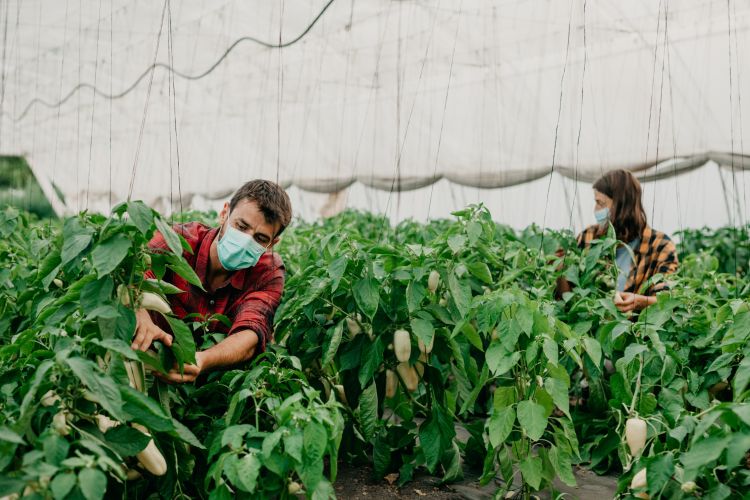Feeding the Nation: seasonal migrant workers and food security during the COVID-19 pandemic

New research initiative investigates seasonal migrant work and food security during COVID-19 pandemic.
The School of Sociology and Social Policy at University of Leeds and the Centre on Migration, Policy and Society at the University of Oxford today launched a new research project to study seasonal agricultural migrant work during the COVID-19 pandemic.
The UK food and agriculture sector relies on seasonal migrant workers to plant, harvest and pack crops. Over 90% of seasonal workers in the UK are EU nationals. The COVID-19 pandemic has put huge strains on recruitment and protection of seasonal workers, yet they remain essential to ensure food security throughout the UK during the pandemic.
The new research project Feeding the Nation: seasonal migrant workers and food security during the COVID-19 pandemic launched at the Universities of Leeds and Oxford is funded by the Economic and Social Research Council (ESRC) as part of the UK Research and Innovation’s rapid response to COVID-19. It will examine the experiences of seasonal agricultural migrant workers throughout harvest seasons 2020 and 2021.
Dr. Roxana Barbulescu of the School of Sociology and Social Policy, Centre for Ethnicity and Racism (CERS) at the University of Leeds (PI) and Dr. Carlos Vargas-Silva of the Centre on Migration Policy and Society at the University of Oxford (Co-I) will lead the study.
“We are very keen to document the experiences of seasonal workers and farmers, the often forgotten ‘key workers’ in this crisis” said Dr. Barbulescu.
“Apart from hearing their experiences, we believe our findings will help inform decisions on the post-Brexit immigration system in light of possible future pandemics, and inform debates on the contributions of low skilled migrants as key workers.”
Dr. Vargas-Silva added: “this timely study has a number of objectives. We want to discover, as it happens in real time, how worker recruitment takes place in order to mitigate risks for the UK food supply. Importantly, we also want to provide information to limit contagion on farms. Conceptually we also hope the study will contribute to theories about the high demand for migrant labour in periods of high unemployment.”
The research team will work with the charity, New Europeans, to develop information and guidance materials for seasonal migrants, and with The Department for Environment, Food and Rural Affairs (DEFRA) to ensure that the project informs policymaking. The results of the study will be presented to the wider UK public through a virtual exhibition and media outlets.




